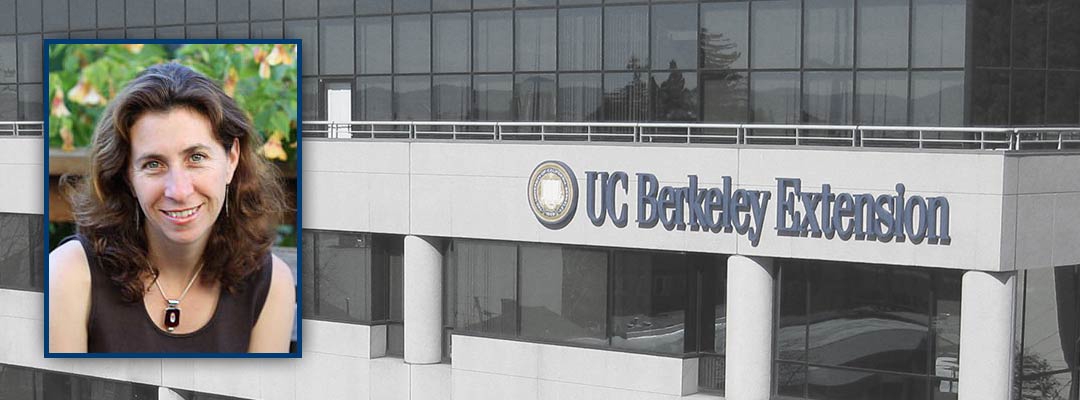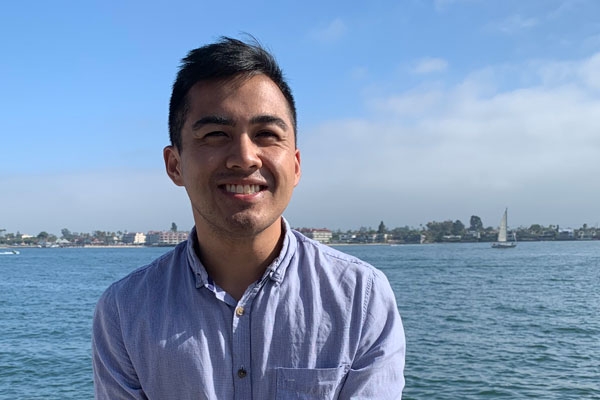Since 1994, more than 600 local public social-services managers have received Berkeley-quality education in order to become leaders in the Bay Area through a fascinating opportunity called Executive Development Program in the Human Services (EDP). A joint effort between UC Berkeley’s School of Social Welfare and UC Berkeley Extension, the program has students learning from the best for its six-week duration.
This includes Andrea DuBrow, M.P.H., M.S.W., a lead instructor and program coordinator for the program for the past seven years. She’s also field faculty at UC Berkeley School of Social Welfare—and an important reason why graduates and community leaders continue to recommend the program.
“Twenty years ago, I was a graduate student in the School of Social Welfare and began to work with Professor Mike Austin and the late Barbara Weiss, who had run the program,” Andrea recalls. “When I was working as a graduate-student assistant to the EDP, I would not have imagined that 20 years later I would be coordinating the program.”
In her current role at EDP, Andrea works with mid-level managers at public-sector county human-service agencies and brings them—along with university faculty, agency managers, experts and program alumni—into the classroom to provide insights into their daily challenges.
“Some of our EDP county partners are integrated health and human-service agencies,” explains Andrea. “I have 10 years of public-sector work experience with Contra Costa County, serving as the project director for Health Care for the Homeless and as a senior health education specialist. Those experiences help me understand the contexts of human resources, funding landscapes, and the roles and functions of public government in supporting vulnerable communities, as well as some of the barriers that are frequently encountered.”
That understanding also has helped Andrea build strong relationships with her EDP students and with their learning experience. As the program’s coordinator, collaborating with students and connecting them with others on similar career paths are important aspects of the job. But above all, it is her ability to create an engaging and supportive learning environment that makes Andrea a 2018 UC Berkeley Extension Honored Instructor.
A Personalized Touch to Teaching
In addition to her ability to collaborate and create a curriculum based on students’ needs and current trends, Andrea also has years of teaching under her belt: She’s been a field consultant and lecturer with UC Berkeley’s School of Social Welfare since 2010.
Her dedication to education easily transfers to teaching Extension students.
According to Behavioral Health Sciences academic director Stan Weisner, “Andrea is an extremely well-organized academic coordinator and the consummate teacher, advising each student on a topic that means something to them individually for the 15-day case-study project. She also has created a number of creative interactive exercises that allow students to share their experiences across counties and to incorporate the in-class material into their own career development and individual-county context.”
On an individual level, Andrea is adept at understanding the diversity of her students and the counties that they serve—specifically, increasing the number of women and people of color in leadership positions in Bay Area county social services departments and creating greater equity for staff and communities. How? She majored in Middle Eastern Studies at UC Berkeley and studied women’s health at the University of Wisconsin in Madison before completing her master’s degrees in social welfare and in public health at UC Berkeley.
“Although my daily work at the School of Social Welfare is not directly related to my role in the Executive Development Program, there are lots of connections with similar constituents,” says Andrea. “My relationships with the public sector help me stay current on issues that are relevant to my graduate students in the School of Social Welfare, who are often placed in graduate-level internships in these same agencies as they learn entry-level post-graduate skills. Occasionally, I place an M.S.W. student with one of the EDP's former participants, and I am starting to see some of my former master’s students coming to the EDP as they advance in their post-graduate careers, which is really fun!
“My work in the EDP ultimately helps develop a continuum of leadership at various levels by creating more effective human services,” she continues, “whether it is through working with students who are just getting their master's degrees and launching their careers, or those who are quite experienced and looking to reach a new level of leadership in their work.”
Always Room for Improvement
Not only does Andrea bring her expertise to each year’s course, she’s continually seeking ways to improve it in order to meet student needs.
“Every year, I solicit feedback from the students and I use that feedback to stay current on topics that are important to students, seek out new speakers to bring into the classroom and constantly adjust the program so that it meets the needs of today's learners,” Andrea explains. “The program is about to begin its 25th year, so in some ways it is a well-oiled machine. At the same time, the topics need to be constantly updated to keep pace with the changing nature of our field and for other adjustments, such as technological advances and changing demographics in our workforce.”
Andrea also considers how she teaches as another aspect that can be tweaked as needed.
“Whether working with mid-career professionals or new graduate students, I am open to what students need and want to learn, and to also show them what is emerging in the field,” says Andrea. “Many of our attendees have more professional experience than I do, so my role then is to listen to what their needs are and to try to bring a range of people together for them to interact with and learn from. I try to use a blend of teaching styles and work with a talented group of consultants to address various learning styles.”
This comes across in the three-week modules and three-week internship. “We use lectures and presentations, as well as group activities and some very interactive learning modules,” she says. “We also have participants interact with each other as much as possible and visit other counties to learn about projects of interest to them. The goal of the Executive Development Program has always included classroom learning and peer-exchange learning in the agency setting.
“EDP students are already a highly motivated bunch when they come to the program,” Andrea continues. “My job is to keep them engaged during the program and help them take advantage of every opportunity to learn from each topic, even if it isn't the most relevant to their immediate work.”
Andrea has been recognized as an engaging and supportive instructor before. In 2015, she received the prestigious UC Berkeley Graduate Assembly’s Faculty Mentor Award and was the first person in social welfare to receive this honor. The Executive Development Program is fortunate to have someone of her caliber teaching and mentoring our students—making her an instructor worthy of being honored.



